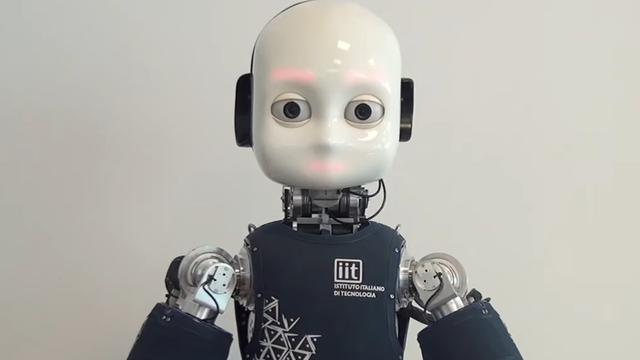The gaze of a robot seems to disturb cerebral activity: we react as if a human gaze were staring at us, which, for example, lengthens decision-making time.
Have you ever felt awkward watching videos of robots that look like us?
This is a phenomenon called "uncanny valley". When a robot is an android, it displays similarities to human beings, but there are a few clues that it is only artificial. It is this kind of discrepancy that creates the psychological phenomenon of derangement.
What if robots had other effects on us, including our brains? In a study published on September 1, 2021 in ScienceRobotics, a team of five scientists looked at robots. “The gaze is an extremely powerful and important signal during communication and interaction between humans, because it conveys intentions and informs about the decisions of others. What happens when a robot and a human interact by looking at each other? ask the authors.
Decision-making becomes more difficult when the robot is watching us
The experiment involved 40 people, installed in front of a computer screen, on which they had to play the “chicken game”. In this game, based on "arm wrestling strategy", two cars race towards each other and, when you approach the other car, you have to make a choice: either you dedicate your route to avoid the accident, or you continue on your way hoping to force the other car to deviate.

The study included a small subtlety: just before the impact between the two cars, and therefore at the decisive moment of the decision, the game was paused and the participants were then invited to watch, next to them, the robot. The latter, an iCub-type robot, stared the participants in the eye or kept their gaze averted.
The smoldering gaze of the robot is intoxicating.
Source: Italian Institute of Technology
This allowed the scientists to identify variations in behavior from one group to another, but also possible changes in brain activity, which was monitored using an electroencephalography device.
The authors were able to draw several conclusions:
“Imagine playing poker with a robot. If the robot is looking at you when you need to make a decision on the next move, you will have a harder time making a decision than if the robot is looking away. Your brain will also have to employ laborious and expensive processes to try to 'ignore' the robot's gaze,” the scientists try to illustrate.
But this laborious mechanism, this diversion of attention by a sustained gaze, this is also what happens when we meet the gaze of a human.
To go furtherFrom Battlestar Galactica to Boston Dynamics: why do we make robots that look like us?The resemblance of the robot's eyes to those of a human therefore acts directly on the socio-cognitive mechanisms: the brain responds to the gaze of the robot as if it were a human social subject. This is not necessarily good news, since interaction with robots could therefore interfere with performance and decision-making speed.
In any case, the result is not trivial according to the authors. “Robots will be increasingly present in our daily lives. This is why it is important to understand not only the technological aspects of robot design, but also the human side of human-robot interaction. Specifically, it is important to understand how the human brain processes behavioral cues conveyed by robots. »










Farewell Touch Bar, I won't regret...
Caddy, the only web server to use H...
Burkina Faso / Gabon (TV / Streamin...
What the future of work will not b...